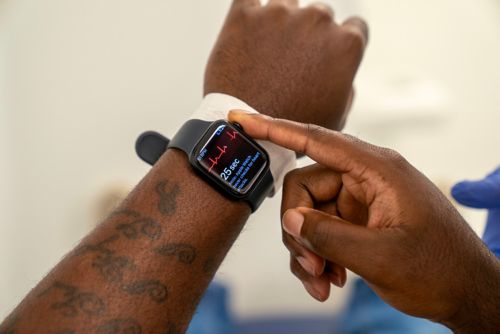Can a smartwatch help predict heart disease in childhood cancer survivors?
That’s what St. Jude LIFE researchers want to know, said Sarah Terrell, manager of the Cancer Control Intervention Center at St. Jude Children’s Research Hospital. St. Jude LIFE is studying whether an echocardiogram (ECG or EKG) on a smartwatch is as accurate as a traditional one.
An ECG records your heart’s electrical activity. It can help diagnose certain heart conditions.
The test is part of a St. Jude LIFE visit. The ECG used right now has 12 wires that are attached to your body with stickers.
Participants wear the ECG during the treadmill stress test that is part of St. Jude LIFE visits. The test does not hurt. But it can be awkward to wear while using the treadmill.
The smartwatch ECG could replace the traditional ECG. It will depend on the smartwatch’s accuracy compared to the wired ECG.
During your St. Jude LIFE visit, you can take part in this study if you choose. You will wear a smartwatch along with the wired ECG during your stress test. Researchers will look at how accurate the smartwatch is compared to the traditional ECG.
In the future, researchers hope to use artificial intelligence (AI) to create a “prediction model” to predict a type of heart disease called cardiomyopathy. Cardiomyopathy makes it harder for the heart to pump blood.
It is hoped smartwatch technology will provide the details needed to identify heart disease in its early stages.
“In the future, survivors may be able to wear this device in the comfort of their own homes instead of having to come to campus,” Terrell said.
Survivors could share the information from the smartwatch ECG with their local health care providers. They could then take steps to manage heart problems before they become serious.
“This study could have such a big impact on so many survivors,” Terrell said. “With the smartwatch, survivors will have information much sooner than if they had to wait to have an ECG during their St. Jude LIFE visit.”



